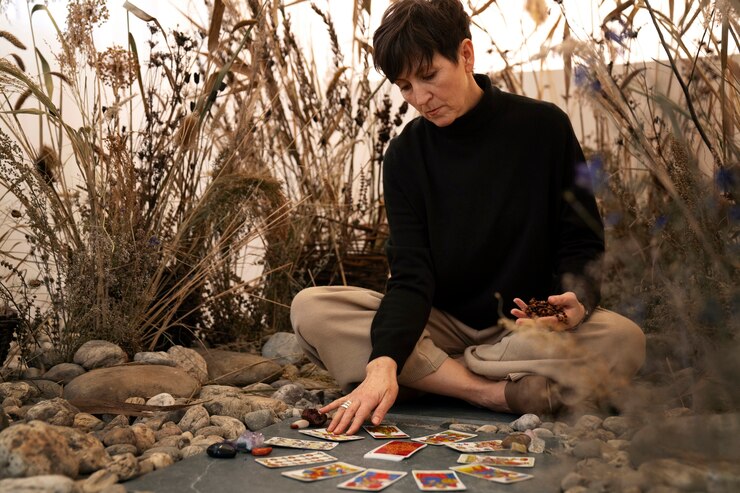Humor evolves with society, reflecting changing attitudes, values, and sensibilities. As we step into 2024, the landscape of comedy continues to shift, particularly around jokes that target physical appearance. Skinny jokes – once a common staple in sitcoms, stand-up routines, and everyday banter – are now facing new scrutiny. With an increasing focus on body positivity, mental health, and inclusivity, it’s worth asking: Are we still laughing at skinny jokes in 2024? Do these jokes still land, or are they becoming outdated? In this blog, we explore the relevance, impact, and perception of skinny jokes in a world that’s redefining what humor should be.
A Brief History of Skinny Jokes
Skinny jokes have been around for decades, often used to exaggerate physical attributes for comedic effect. From early slapstick comedy to classic cartoons, characters portrayed as overly thin were frequently the subject of ridicule. Historically, these jokes capitalized on stereotypes of fragility, weakness, or awkwardness associated with thinness. While humor was once considered harmless, evolving social norms now question whether these jokes are still acceptable.
Why Skinny Jokes Became Popular
The popularity of skinny jokes was largely due to their relatability and visual exaggeration. Thinness could be used as an obvious punchline, drawing laughter through hyperbole. Characters depicted as “so skinny they could slip through cracks” or “thin enough to disappear in a gust of wind” created humor through absurd imagery. For a long time, this humor was seen as innocent, playing on universal themes of appearance without deeper examination of their implications.
The Shift Toward Body Positivity
In recent years, the body positivity movement has transformed how society views physical appearance. The movement promotes acceptance of all body types, challenging the glorification of thinness and addressing issues like body shaming. As conversations about body image become more nuanced, jokes that target body size – whether skinny or overweight – are increasingly seen as outdated or insensitive. In this context, skinny jokes are being reassessed for their impact and appropriateness.
The Impact of Skinny Jokes on Self-Image
Skinny jokes, while seemingly light-hearted, can have unintended consequences on self-image. For individuals who are naturally thin or struggle to gain weight, these jokes can reinforce feelings of inadequacy, shame, or alienation. Comments like “Do you ever eat?” or “You look like a stick” can undermine confidence and contribute to negative body perception. In 2024, with mental health awareness on the rise, society is recognizing the subtle harm these jokes can cause.
Changing Standards of Humor
Humor has always been a reflection of cultural standards, and in 2024, those standards are shifting. Comedy is moving toward inclusivity and sensitivity, where the intent is to uplift rather than demean. This shift doesn’t mean that humor is dying; rather, it’s evolving to become more creative and considerate. Skinny jokes, which rely on tired stereotypes, are increasingly seen as lazy humor that fails to meet modern comedic standards.
Skinny Jokes and Gender Dynamics
Skinny jokes often carry different implications depending on gender. Women who are thin may face stereotypes of being frail, unhealthy, or vain, while men may encounter jokes that question their masculinity. In 2024, gendered expectations around body size are being challenged, making humor that reinforces these stereotypes feel outdated. The rise of feminist and body-positive movements continues to call for more equitable and respectful representations in comedy.
The Role of Social Media
Social media platforms play a significant role in shaping modern humor. In 2024, platforms like TikTok, Instagram, and Twitter amplify conversations around body image and sensitivity. While some creators still use skinny jokes for humor, backlash is often swift. Online communities promote body acceptance, and content that shames or mocks body types can lead to public criticism. As a result, comedians and influencers are adapting their humor to avoid alienating audiences.
The Influence of Gen Z and Millennials
Younger generations are driving much of the change in how body-related humor is perceived. Gen Z and Millennials are more likely to reject humor that perpetuates body shaming or outdated stereotypes. These generations prioritize inclusivity and mental health, and they often call out jokes that they consider harmful. Their influence on media, entertainment, and cultural discourse is helping to redefine what’s considered funny in 2024.
Comedy and Accountability
In 2024, comedians are facing greater accountability for their content. While freedom of expression is still valued, there’s an expectation that humor shouldn’t come at the expense of marginalized or vulnerable groups. Skinny jokes fall into this category when they perpetuate body shaming or reinforce harmful stereotypes. Many comedians are rethinking their material, focusing on humor that punches up rather than down.
When Skinny Jokes Cross the Line
Not all skinny jokes are equal. Some may be lighthearted and harmless in the right context, such as among friends who understand each other’s boundaries. However, jokes cross the line when they target individuals without consent, reinforce harmful stereotypes, or mock struggles related to body image. In 2024, recognizing these boundaries is essential for humor to remain respectful and enjoyable for everyone.
Are There Alternatives to Skinny Jokes?
Yes, humor doesn’t have to rely on body-related jokes to be funny. Comedians and content creators are exploring humor based on absurdity, wit, satire, and observational comedy. By focusing on shared experiences, clever wordplay, and creative scenarios, humor can thrive without targeting physical attributes. This approach not only broadens comedic possibilities but also fosters a more inclusive and respectful environment.
How to Navigate Humor in 2024
In 2024, navigating humor requires mindfulness and adaptability. Here are a few tips for ensuring humor remains respectful:
- Know Your Audience: Understand who you’re joking with and what might be sensitive for them.
- Avoid Stereotypes: Challenge yourself to find humor that doesn’t rely on clichéd body jokes.
- Stay Informed: Be aware of evolving social norms and how they shape humor.
- Practice Empathy: Consider how your jokes might make others feel.
- Embrace Creativity: Explore new forms of humor that are inclusive and inventive.
Conclusion
In 2024, skinny jokes are increasingly being seen as relics of a bygone era. As society becomes more conscious of body positivity, mental health, and inclusivity, humor is evolving to reflect these values. While some may argue that comedy should have no boundaries, the reality is that humor thrives best when it respects and uplifts rather than demeans. By reconsidering skinny jokes and embracing more inclusive humor, we can create a world where laughter brings people together, not apart. So, are we still laughing at skinny jokes in 2024? For many, the answer is no – and that’s a sign of progress.












Leave a Reply